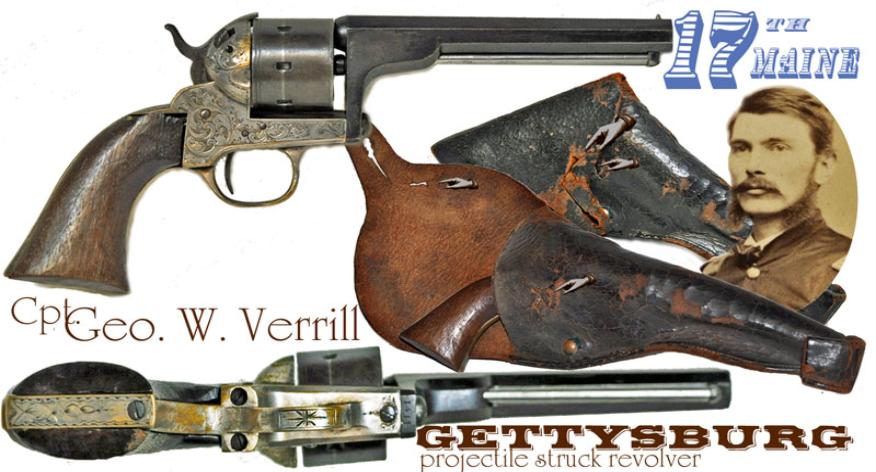


By 6:PM on July 2, 1863 the embattled 17th had already put in a full day. ‘We had been aroused at two o’clock that morning at Emmitsburg for the march to the field of battle’ remembered Capt. George W. Verrill in 1894 as he penned his contribution to the Maine War Papers. There would be more for the 17 Maine to accomplish that afternoon but this young officer would soon see a close to his part in a day of early march and heavy fighting. Not one to embellish his own part in the Regiments fighting that day, Verrill’s Maine War Papers account, records the loss of a ‘most perfect officer’, Regimental Adjutant Charles Roberts, then he simply writes; A few minutes later on a missile penetrated my thigh. In his piece Capt. Verrill offers nothing further with respect to the circumstances or severity of his wound. To gain further understanding we must rely on medical records and, fortunately for us, supporting and more personal accounts offered via family history passed to Capt. Verrill’s grandson and namesake. Per childhood accounts as past to son, grandson, then great grandson, Verrill’s liberated Moore’s Patent single action revolver tucked away at his side took the brunt of the blow that day as it passed through the leather flap of the holster striking the revolver just at the junction of the walnut grips and revolver frame. The projectile then exited the body of the holster to bury itself in Verrill’s thigh. The resulting badly misaligned single action with Verrill’s hand carved replacement grips and original leather holster with entrance and exit damage, offers testament to the occurrence that day at the edge of the Wheatfield. Per contemporary medical and pension papers the projectile buried itself in the Maine officer’s thigh. The projectiles resting place deep in the thigh was thought to be adjacent to the sciatic nerve. Medical science dictated that the projectile remain where it came to rest. Though the motivated young office would return to his Regiment after some period of convalescence, time would take its toll. Verrill would receive disability pension upon mustering out at the close of the Civil War and would all his life carry the painful remnant of that day on the battlefield at Gettysburg. The Moore’s revolver and holster, liberated from a Confederate officer and carried into the Battle of Gettysburg would ultimately pass to his grandson and namesake.






